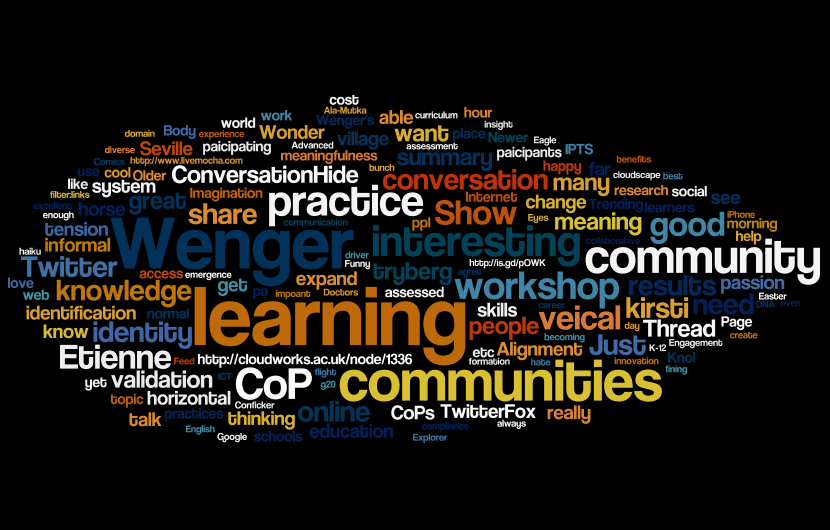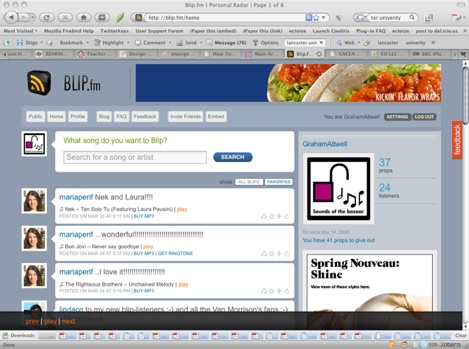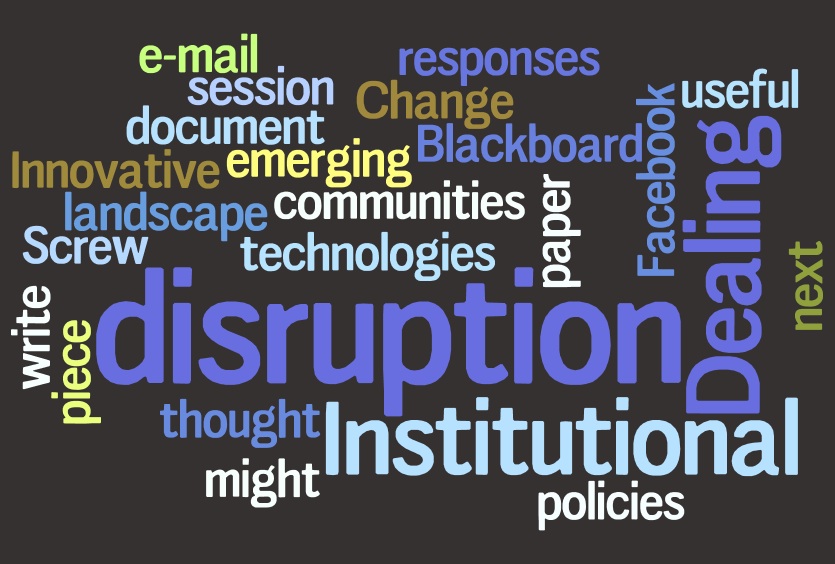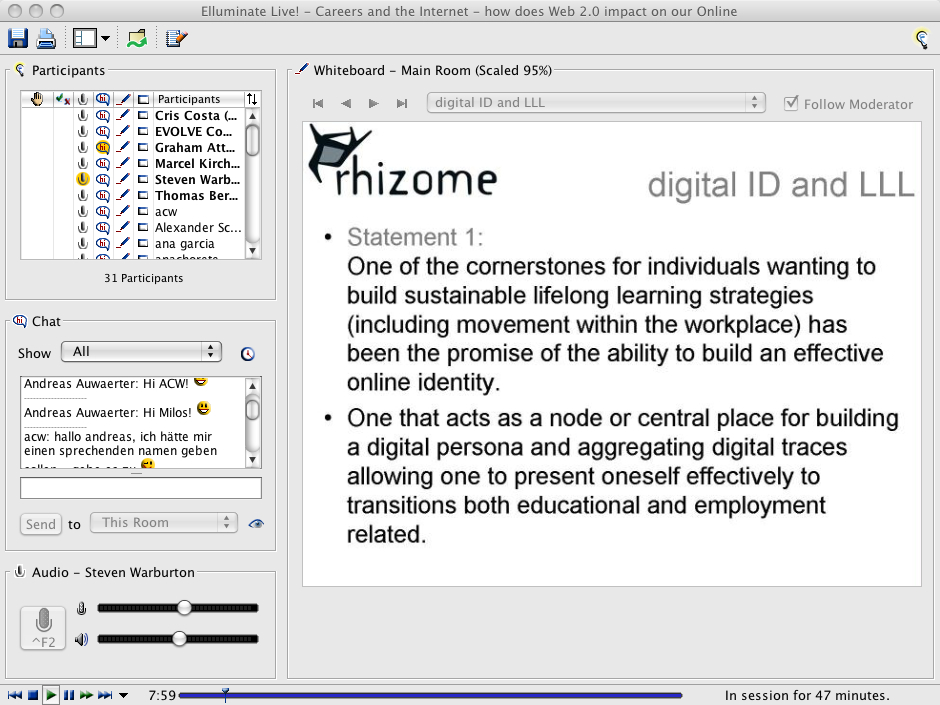Edupunk won’t go away, Edupunk is here to stay
A silly term, a fad, middle aged white male educational technologists at play? Edupunk has been called all of those but it won’t go away. Why is that? Because edupunk defined by Jim Groom as ” An approach to teaching and learning practices that results from a do it yourself attitude….inventive teaching and inventive learning” sums up the direction in which many of us which to see technology used in education.
This week saw the final of the spring series of open web based seminars organised jointly by the UK Jisc funded Evolve network and the German EduCamp organisation. And, appropriately enough the subject was edupunk.
There were two very different takes on the edupunk movement by the presenters. Martin Ebner from Graz Univeristy started by quoting Antonio Fumero who said “It’s not about matching traditional models with existing tools any more; it’s about developing a brand new pedagogical modal and implementing the next generation web environment upon it. He contrasted the goals of creativity, individuality and collaboration to the “closed castle of the university.”
Martin said universities need edupunks. But rather than radical preaching, Graz has adopted a practical strategy of trying to open up the university VLE and learning support systems to allow students and staff to use their own tools for creating and consuming content. Martin said the “learning environment of the future has to support the individual learning needs of the learners….has to support the lecturers as well and …has to consider the web as [a] communication and collaboration environment.”
Steven Wheeler from Plymouth University had a more radical approach – or at least he would have if his university network hadn’t closed him out of the Elluminate platform used for the seminar. On his blog he explained what he would have said:
- “Edupunk is a philosophy deeply rooted in the belief that educators can ‘do it themselves’, and use tools that are open, ‘free’ and non-proprietary. It’s a movement against the commoditization of learning and against corporate profiteering. It is not just about selecting open tools and technologies. It is also about the freedom to choose the methods of teaching that are open and student centred. I would even go as far as to claim that Edupunk teachers should be challenging the curricula they are required to teach, and especially the assessment methods that are imposed from on high. These are the structures that constrain education and stop learners from achieving their full potential.
- Virtual Learning Environments (VLEs) and in particular Learning Management Systems (LMSs) contribute toward restrictive practices in education and constrain both learner and teacher to operate within a model of learning that is institutionally beneficial, but does little for the learner themselves. VLEs are generally difficult to use, with far too much effort needed to be put into understanding how the system works, to the detriment of the time and effort spent actually learning.
- An exemplification of Edupunk philosophy is the rise of the personal learning environment (PLE) in which the learner selects his/her own tools and technologies to apply in formal and informal learning. Typical PLEs will incorporate a social networking service, reflective and collaborative tools, e-mail and a mobile device. I use a mashup of wiki (shell to aggregate all tools and provide a collaborative space), blogs (reflective tool and mind amplification space) and Twitter (microblog to update and inform and also to receive ideas and contact from others with a similar interest to me). I also use my wireless laptop and iPhone as communication/end tools.
- Edupunk is more than ‘do it yourself’. It is also a counterculture against corporate control and exploitation of learning, and brings the punk band (the teacher) closer to the audience (learner group). It is unashamedly anarchic and harks back to the concept of ‘deschooling society’ first proposed by Ivan Illich in the 1970s. Illich famously argued that we don’t need funnels (directional learning through institutional control) but webs (multi-directional, hyperlinked learning that can be tailored by the individual to her/his own needs). Rhizomatic approaches to learning fall into this kind of philosophy.”
This is interesting. Both Martin and Steve embrace the idea of edupunk. Both are supporting the introduction of Personal Learning Environments. But whilst Steve sees edupunk ” bricolage, anarchy and subversion and a challenge to the establishment” and the VLE as contributing to restrictive practices, Martin is seeking to open up the VLE and apply the ideas of edupunk in an institutional context. He does not appear to see it as subversive or a challenge to the establishment but rather as a way of enhancing the teaching and learning environment.
Could it just be that the idea of edupunk is now becoming part of the mainstream and as it does different strategies will emerge? Is it also possible that edupunk is becoming a (valuable) concept in itself without the need to be viewed as an analogy to the punk music scene of the 1970s. I hope so.
If you want to listen to the debate the Elluminate replay of the seminar is available on line.








